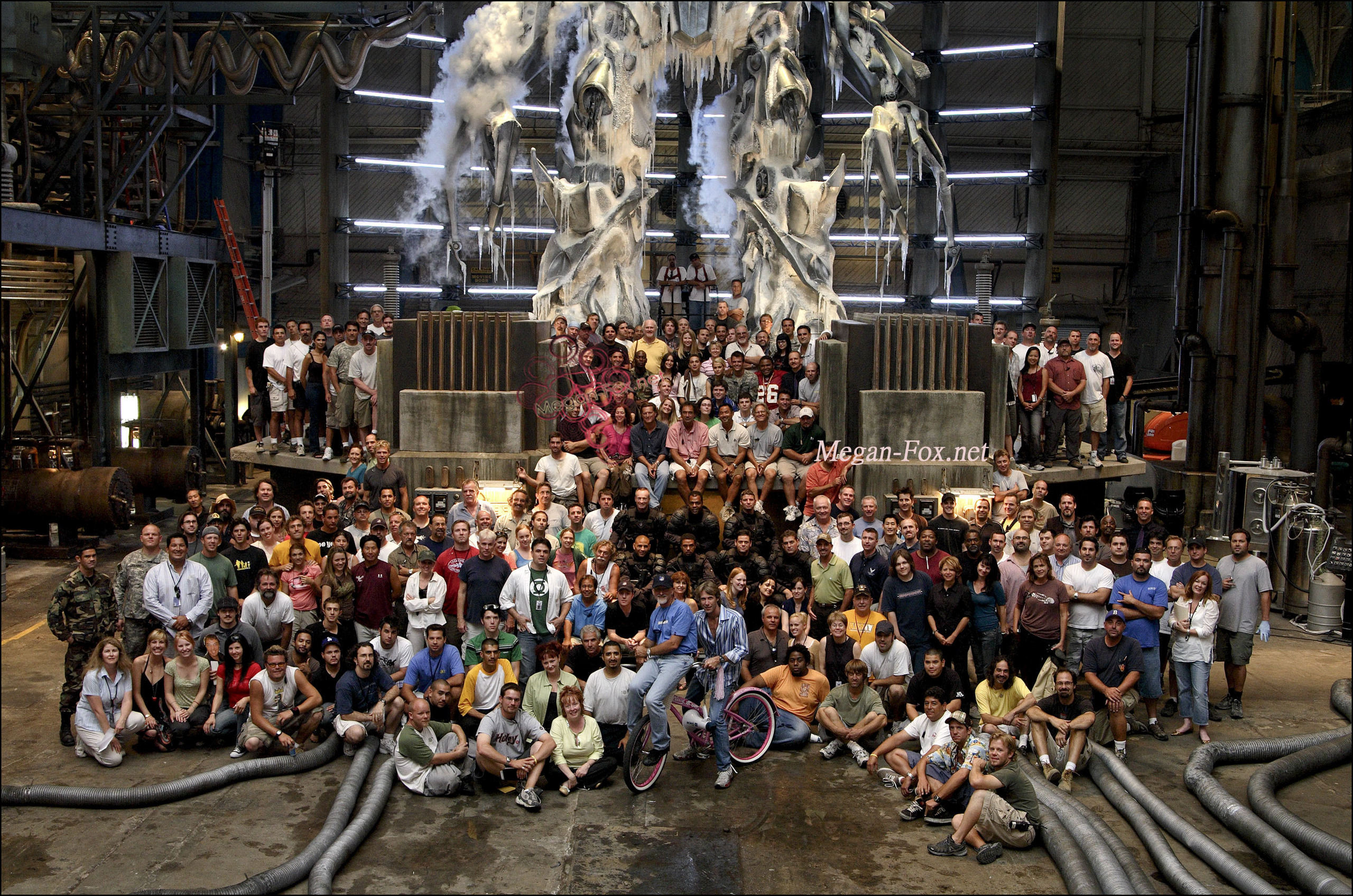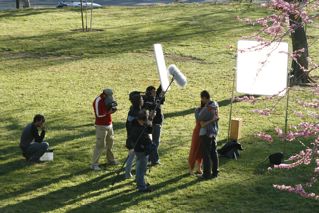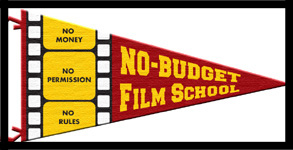|
My email box was ablaze this past Friday with news that Paramount was forming their own micro-budget film division. The goal is to make twenty $100k no-budget features a year.
After their success with "Paranormal Activity," (a film they DID NOT PRODUCE, by the way), this sounds like a case
of 'give the guy a rope and now he thinks he's a cowboy.' All I can say is, "good luck!"
As someone who has devoted most of the last 15 years to no-budget filmmaking and spent the last six years specifically working
on this kind of a multi-film model, not to mention the last five years teaching no-budget filmmaking and making my own no-budget
features, I have this cautionary note for Paramount: it's harder than it looks. | | The set of a typical Paramount film |
I'm used to not getting paid for my work. And I don't mind doing most of the work myself. I often break laws and
take undo risks when I produce. And I'm not afraid to reinvent the way to make a movie for each new project. This doesn't
sound like a studio's modus operandi to me. I could think of any number of elements that alone would cost a studio more
than the $100k:
- Acting talent fees (or did they not know that their own system has required movies to be made
with stars these days) - All other ATL talent fees (the directors and producers on my movies NEVER make an upfront fee--that's
one important, basic way you keep the budget down) - Rewriting those scripts (they mention obtaining scripts and then re-writing
them. Last time I checked, optioning scripts and hiring writers, especially for a studio, costs money. Or are they just going
to hire unknown writers and give them a shot. The film festival world is filled with those results already). - A union crew
(this is a studio after all--how are they getting around unions??) - A good editor (this is the camel that often breaks a
no-budget film's back. Most successful no-budget films were edited by the writer/director or had some team member who
was absolutely dedicated to the project who edited it. Once you go outside of that and hire a real editor, who is talented,
you're going to have to pay them for their three or more months of work. Even if you can get their agent down to say,
$2k or $1k per week, you're talking about 10% to 20% of your budget right there). - Insurance (studios, with something
to lose, like insurance, which is expensive) - Lawyer fees (studios REALLY like lawyers. If I had to pay a lawyer to help
me make my movies, all the money would go to them, most likely. I suppose they could charge their in-house legal fees to other
divisions?) - Permitting locations and paying to rent them (if you've taken my class or read any of my production entries
on my site, you know I'm not a fan of either paying to rent locations or permitting them. Locations in LA are expensive
and permitting is too.) - And so many other things...
 | | The set of my last film |
This
smells to me of people who have no idea of what they're doing. Who have never studied a $100k budget. Who have never
asked people to work for free. Who have never begged, borrowed, or stolen. Who really don't know how hard it is, how
nearly impossible it is, to make a good movie on no money. As someone who has worked with some of the most talented people
in the business at doing this, (Chris Nolan on his $12k feature "Following," for instance) and seen literally 1,000s
of attempts that didn't work out, I can tell them that a studio is probably the least-equipped place I can think of to
make this work. Even InDigEnt, which was formed by talented filmmakers, an independently minded film company, and one of
the smartest people in the independent film world, ultimately couldn't make this model work, certainly not for $100k and
over the long haul. They had many wonderful successes, but 20! Per year!!
I make these films out of necessity.
I pay very little a month for my rent-controlled apartment and I still struggle to make ends meet, just to have the opportunity
to make films the way I want to make them--with creative control and no studio interference. People with mortgages and kids
and nice things that they enjoy can not make movies this way. And Paramount doesn't have the legal stomach to pull off
the things that we do every day as independent filmmakers.
So to you, Paramount, I'll say it again, "Good
Luck!" (and if you're hiring for this, I'm easy to reach!)
ARCHIVED EDITIONS OF THE NO BUDGET REPORT:
|

